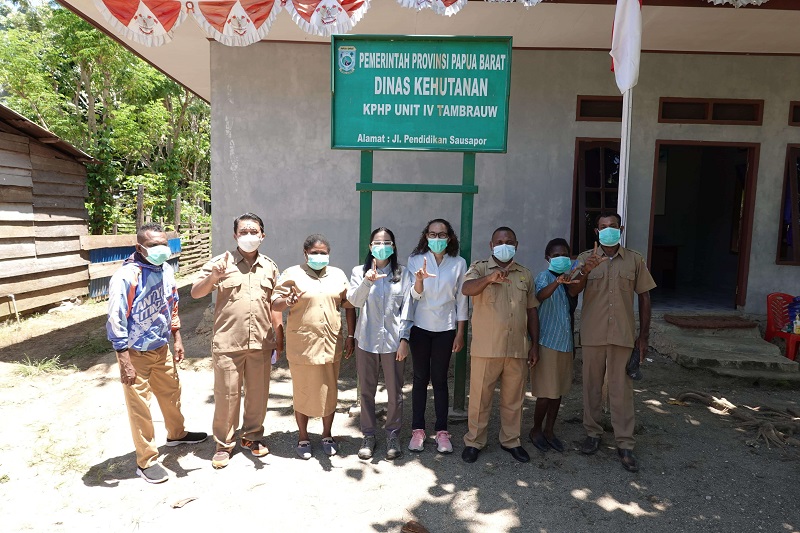
In line with FORCLIME's mandate to support social forestry within Tanah Papua, FORCLIME has initiated activity aimed at identifying potential pilot villages through the Production Forest Management Unit (KPHP) at Tambrauw. Based on discussions with the Forestry Service of West Papua Province and KPHP Tambrauw, three recommendations for prospective joint pilot villages were tabled, namely Orwen Village in Distrik Kwoor, Emmaus Village in Distrik Sausapor and Bikar Village in Distrik Bikar. The FORCLIME team, working in conjunction with representatives from KPHP Tambrauw, conducted visits to these villages in order to gather information on their geophysical conditions, community institutions, potential Non-Timber Forest Products (NTFPs) and potential for assistance, as well as the locations of and access to the three villages. The field visits were held from 13 - 15 October 2021.
During the visits, the FORCLIME and KPHP Tambrauw teams met and interacted with local communities, which welcomed the team with open arms. Members of the Abun tribe live in the three villages and already have a recognized customary institution, namely the Abun Tribe Traditional Community Institution (Lembaga Masyarakat Adat Suku Abun - LEMASA). In general, the potential NTFPs that the three villages produce comprise lawang trees, candlenut, rattan, orchids, deer, agarwood and masoi. These NTFPs are managed by the community on a collective basis by approximately 12 - 27 persons and the management of the NTFPs is carried out in line with the customary rights of each clan. Various local wisdom relates to the management of NTFPs, particularly in relation to lawang oil, the managers of which must not have any bad intentions and must not have had any contact with women. In addition, hunting activity must be undertaken through the use of traditional tools. There is also a sacred forest here, specifically a forest that can only be accessed by clans who possess customary land rights. Moreover, the forest products that are produced within this forest can only be utilized by certain persons.
In the wake of these visits, the FORCLIME team and KPHP Tambrauw will consult with the West Papua Provincial Forestry Service in order to determine a target village and to coordinate regarding potential within in the village. The team is also planning to hold a number of events in order to disseminate information and will request permission from LEMASA prior to undertaking any such activities.
For more information, please contact:
Nita Yohana, Adviser for Sustainable Forest Management and Coordinator for West Papua Province
Melanesia Brigite Boseren, Junior Adviser for Rural Livelihood, Forest Management and Conservation
Mohammad Sidiq, Strategic Area Manager for Sustainable Forest Management and Coordinator for Papua and West Papua Provinces






